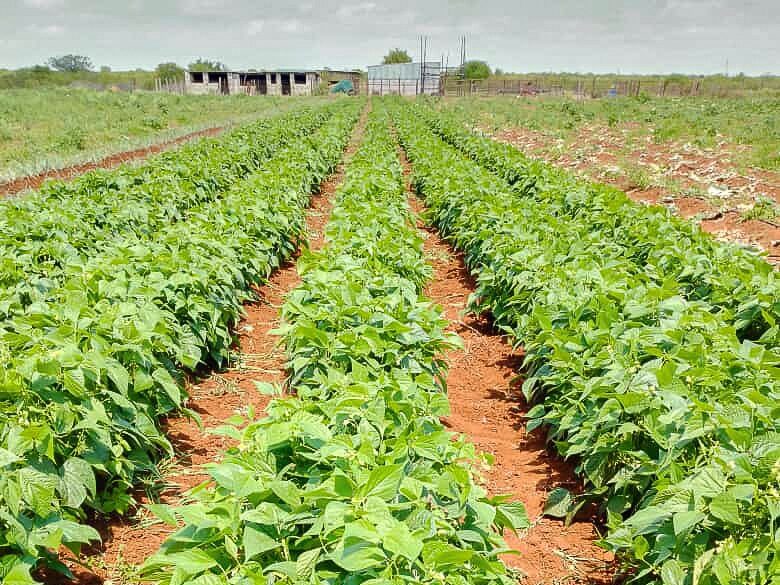Every day, nearly one in three people around the world struggles to access safe drinking water—a basic human need.
As climate change intensifies droughts, and growing populations stretch already limited resources, the crisis of water scarcity is deepening and placing millions at risk—especially in remote and vulnerable communities.
At Global Mission Partners (GMP), we believe access to clean water is not just a necessity, but a right—and a foundation for lasting change. Through our partnerships with local communities, we support grassroots solutions like:
- rainwater harvesting,
- boreholes, and
- sustainable family gardens
These development projects empower people to take control of their future. From Zimbabwe to outback Australia, our water projects are transforming lives, nourishing families, and cultivating resilience.
When water flows, so too does health, dignity, and opportunity. Together—with compassion and action—we can fight water scarcity and help create a healthier and more just world for all.
What is water scarcity?
Water scarcity arises when the demand for water surpasses the available supply. It manifests in two primary forms:
- Physical Water Scarcity: Occurs when natural water resources are insufficient to meet a region’s needs.
- Economic Water Scarcity: Happens when water is available, but access is limited due to infrastructural or financial constraints.
Globally, over 1.2 billion people experience physical water scarcity, and many more face economic challenges in accessing clean water.
How does water scarcity affect food production
Water scarcity in Africa and around the world directly impacts agriculture, leading to reduced crop yields and food insecurity. In regions like Zimbabwe, prolonged droughts and drying rivers have made irrigation challenging, threatening the livelihoods of smallholder farmers who produce the majority of the country’s food.

A story of hope: family gardens in Zimbabwe
At the Khayelihle Children’s Village (KCV) in Bulawayo, Zimbabwe, children like Mwoyo are combating water scarcity through innovative farming practices. Despite erratic rainfall, KCV utilizes six boreholes to irrigate two hectares of farmland, while practising conservation farming on four rain-fed hectares.
Each household maintains its own family garden, cultivating vegetables like okra, kale, tomatoes, and maize. These gardens not only provide nutritious meals but also teach children responsibility and sustainable farming techniques. Find out more about our work in Zimbabwe.
How you can help fight water scarcity
Water scarcity is a pressing global issue, but there is hope. Through collective action and sustainable practices like the below, we can create a healthier future together:
- Donate to Global Mission Partners: help us to continue our life-changing water conservation projects that support communities in need—such as the installation of boreholes, tanks, and irrigation systems that improve daily life and food security.
- Get Involved in Safe Water September: Take the challenge to drink only water for a month and raise funds for clean water projects. It’s a powerful way to stand in solidarity with communities facing this issue and support long-term solutions to water scarcity in Africa.
- Educate Others: Raise awareness by sharing this page and the Safe Water September campaign with friends, family, or your church community. Every conversation can spark action.
- Advocate for Policy Changes: Encourage local and national governments to invest in foreign aid, prioritise responsible water resource management, invest in climate-resilient infrastructure, and protect natural water sources.
Frequently asked questions
How can we solve the problem of water scarcity?
Solving the problem of water scarcity requires a combination of innovation, education, and equity.
Locally practical solutions can dramatically reduce water waste and improve access—especially in agriculture, which accounts for over 70% of global freshwater use. These solutions include:
- Rainwater harvesting
- Drip irrigation
- Greywater recycling
On a larger scale, investment in infrastructure, such as water treatment plants and resilient piping systems, is essential to ensure clean water reaches every home and community.
Education also plays a vital role: by teaching sustainable water practices and empowering people—like the families in Zimbabwe’s garden project—we build lasting change from the ground up.
A united effort from individuals, communities, governments, and global organisations is key to ensuring water is available for all, now and for future generations.
What can the government do to stop water scarcity?
Governments play a crucial role in stopping water scarcity by:
- Shaping policies
- Funding infrastructure
- Leading public education
They can invest in long-term solutions like:
- Building and maintaining water storage systems
- Modernising irrigation networks
- Implementing wastewater recycling initiatives
At the policy level, governments can:
- Enforce regulations that protect natural water sources from pollution and overuse
- Encourage sustainable practices across agriculture, industry, and households
Ensure equitable access by prioritising vulnerable and remote communities—like those supported by Global Mission Partners—where simple interventions like boreholes or tanks can be life-changing.
By combining smart investment, strong leadership, and community collaboration, governments can help secure water for all.
10 ways to prevent water scarcity
- Rainwater harvesting: Collecting and storing rainwater for agricultural and domestic use.
- Drip irrigation: Efficient watering systems that minimize waste.
- Conservation farming: Techniques like mulching and no-till farming to retain soil moisture.
- Greywater recycling: Reusing household wastewater for irrigation.
- Drought-resistant crops: Cultivating crops that require less water.
- Fixing leaks: Repairing infrastructure to prevent water loss.
- Public awareness campaigns: Educating communities on water conservation.
- Government policies: Implementing regulations to manage water resources effectively.
- Desalination: Converting seawater into potable water in coastal areas.
- Water-efficient appliances: Using devices that reduce water consumption in households.
